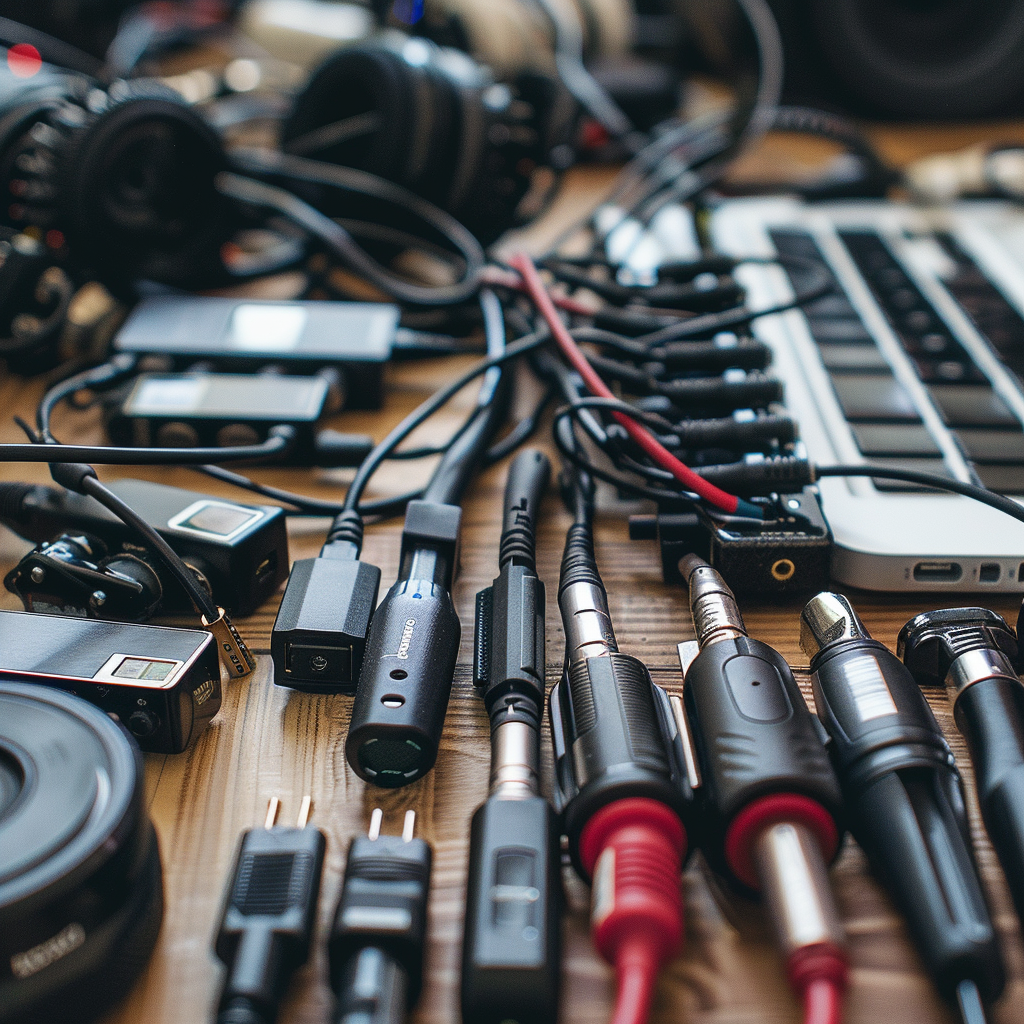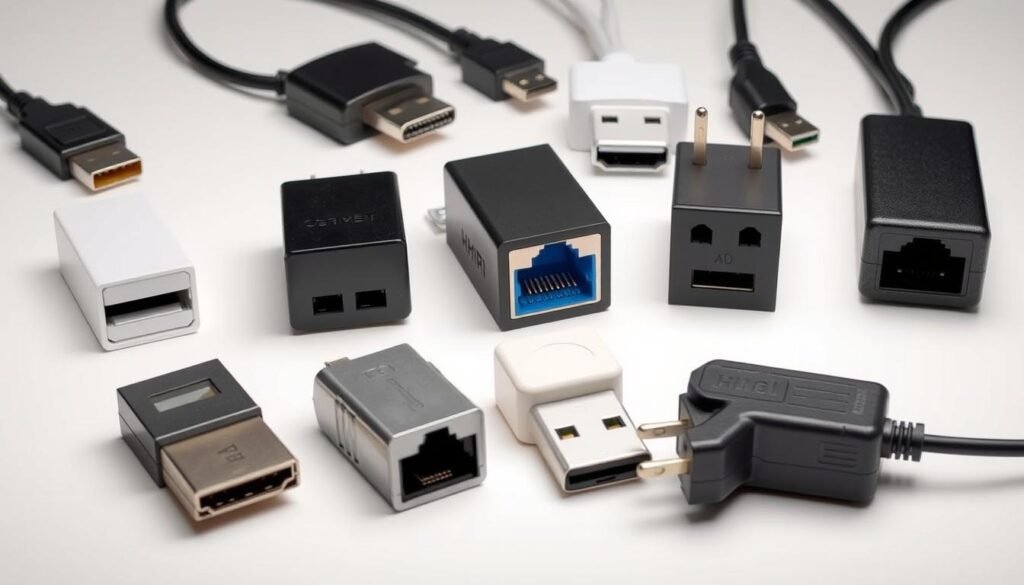In today’s world of multimedia technology, audio adapters are essential tools that allow us to connect various devices, from smartphones and computers to speakers and audio systems. With a variety of audio formats and connection types available, choosing the right adapter can be crucial for achieving optimal sound quality and compatibility. This comprehensive guide will explore the different types of audio adapters, their uses, and how to select the best one for your audio setup.
Understanding Audio Adapters
What Are Audio Adapters?
Audio adapters are devices that facilitate the connection between different audio equipment that may not be directly compatible with each other. They convert audio signals from one format to another or adapt different types of connectors to ensure a seamless connection between devices.
Why Use Audio Adapters?
The primary reasons to use audio adapters include:
- Compatibility: Adapters allow devices with different audio outputs and inputs to connect, enabling seamless audio playback.
- Versatility: They enable users to integrate various devices into their audio systems, regardless of their connection standards.
- Enhanced Sound Quality: Certain adapters are designed to optimize audio signals, improving overall sound quality.
Common Types of Audio Adapters
1. 3.5mm Audio Adapters
The 3.5mm audio jack is one of the most common audio connectors used in devices today. Various adapters exist for this standard, including:
- 3.5mm to RCA Adapter: This adapter converts a 3.5mm audio signal to RCA connectors, allowing you to connect headphones or portable devices to home audio systems or TVs.
- 3.5mm to XLR Adapter: This is useful for connecting consumer audio devices to professional audio equipment, like microphones and mixers.
2. USB Audio Adapters
USB audio adapters are used to connect audio devices through USB ports. They come in different forms:
- USB to 3.5mm Audio Adapter: Perfect for laptops and desktops without a headphone jack, this adapter allows users to connect standard headphones or speakers via USB.
- USB DAC (Digital to Analog Converter): This type of adapter converts digital audio signals from USB sources into analog signals, providing higher sound quality for audiophiles. Many USB DACs support higher sample rates and bit depths, enhancing audio fidelity.
3. Bluetooth Audio Adapters
Bluetooth audio adapters enable wireless audio streaming from devices equipped with Bluetooth capabilities. Common types include:
- Bluetooth Transmitter: This adapter connects to a non-Bluetooth device (like a TV or audio system) and allows it to transmit audio wirelessly to Bluetooth headphones or speakers.
- Bluetooth Receiver: Used to connect Bluetooth-enabled devices to wired audio systems. For instance, this adapter can make old speakers Bluetooth-compatible, allowing streaming from smartphones or tablets.
4. Optical Audio Adapters
Optical audio adapters facilitate the connection of devices that utilize digital optical audio signals (TOSLINK). Common uses include:
- Optical to RCA Adapter: This adapter converts optical audio signals to RCA connections, enabling connection to older audio systems that may not have optical input.
- Optical to 3.5mm Adapter: This allows for connecting optical outputs from devices to standard headphones or speakers.
5. HDMI Audio Extractors
HDMI audio extractors enable users to separate audio signals from HDMI connections. They are particularly useful in home theater setups. Key features include:
- HDMI to 3.5mm or RCA: This adapter extracts audio from HDMI sources (like gaming consoles or Blu-ray players) and provides audio outputs for older sound systems.
- Multi-Channel Support: Some HDMI audio extractors support surround sound formats, enhancing the overall audio experience.
6. Adapter Combos
Certain adapters combine multiple functionalities to enhance convenience:
- Multi-Port Adapters: These devices often feature a combination of audio and video outputs, such as HDMI and USB-C with audio outputs, making them ideal for modern devices that require multiple connections.
- Docking Stations: Many docking stations include audio outputs alongside USB ports and video connections, providing an all-in-one solution for connecting laptops or tablets to a variety of peripherals.
Selecting the Right Audio Adapter
When choosing an audio adapter, consider the following factors:
1. Compatibility
Ensure that the adapter is compatible with both the audio source and the receiving device. Check the connector types and audio formats supported by each device.
2. Audio Quality
Consider the audio quality you need. For high-fidelity audio playback, opt for adapters that support higher sample rates and bit depths, like USB DACs.
3. Purpose of Use
Think about the primary use of the adapter. For example, if you frequently connect devices for portable use, a compact Bluetooth adapter may be ideal. If you’re setting up a home theater, an HDMI audio extractor may be more suitable.
4. Ease of Use
Look for adapters that are easy to set up and use. Plug-and-play options are preferable, especially for users who may not be tech-savvy.
5. Durability
Select adapters that are well-built and made from high-quality materials. This ensures longevity and resistance to wear and tear from frequent use.
Troubleshooting Common Audio Adapter Issues
Even with the right audio adapter, users may encounter issues. Here are some common problems and solutions:
1. No Sound Output
If you experience no sound output, check the following:
- Connections: Ensure that all cables are securely plugged in and that the correct input source is selected.
- Device Settings: Verify that the device settings are configured to output sound through the correct adapter.
2. Poor Sound Quality
If the audio quality is poor or distorted:
- Check Cable Quality: Ensure that cables and adapters are of high quality and properly connected.
- Interference: For wireless adapters, ensure that there are no obstacles or interference sources that could affect the Bluetooth signal.
3. Incompatibility Issues
If your adapter is not recognized:
- Check Compatibility: Ensure that the adapter is compatible with both the audio source and the receiving device.
- Driver Installation: For USB adapters, make sure the necessary drivers are installed on your device.
Conclusion
Audio adapters are vital components in modern audio setups, enabling seamless connectivity between various devices and enhancing the overall listening experience. By understanding the different types of audio adapters available, selecting the right one for your needs, and following best practices for usage and troubleshooting, you can maximize your audio performance. Whether you’re streaming music, gaming, or enjoying movies, the right audio adapter will help you achieve optimal sound quality and connectivity. If you have any tips or experiences related to audio adapters, feel free to share in the comments below!
Resources for Further Learning
- YouTube Tutorials: Search for video guides on specific types of audio adapters and their uses.
- Audio Forums: Join communities to discuss and share insights on audio equipment and connectivity solutions.
- Books on Audio Technology: Consider reading literature that delves deeper into audio technology and standards for a more comprehensive understanding.
FAQs About Audio Adapters
- Can I use a USB audio adapter for high-quality audio?
- Yes, USB audio adapters, especially DACs, can provide high-fidelity audio when connected to compatible devices.
- What should I do if my audio adapter isn’t recognized?
- Check connections, ensure compatibility, and verify that any necessary drivers are installed.
- Are Bluetooth audio adapters suitable for gaming?
- While many Bluetooth audio adapters offer good quality, wired connections generally provide lower latency, which is preferable for competitive gaming.
Related Articles:



